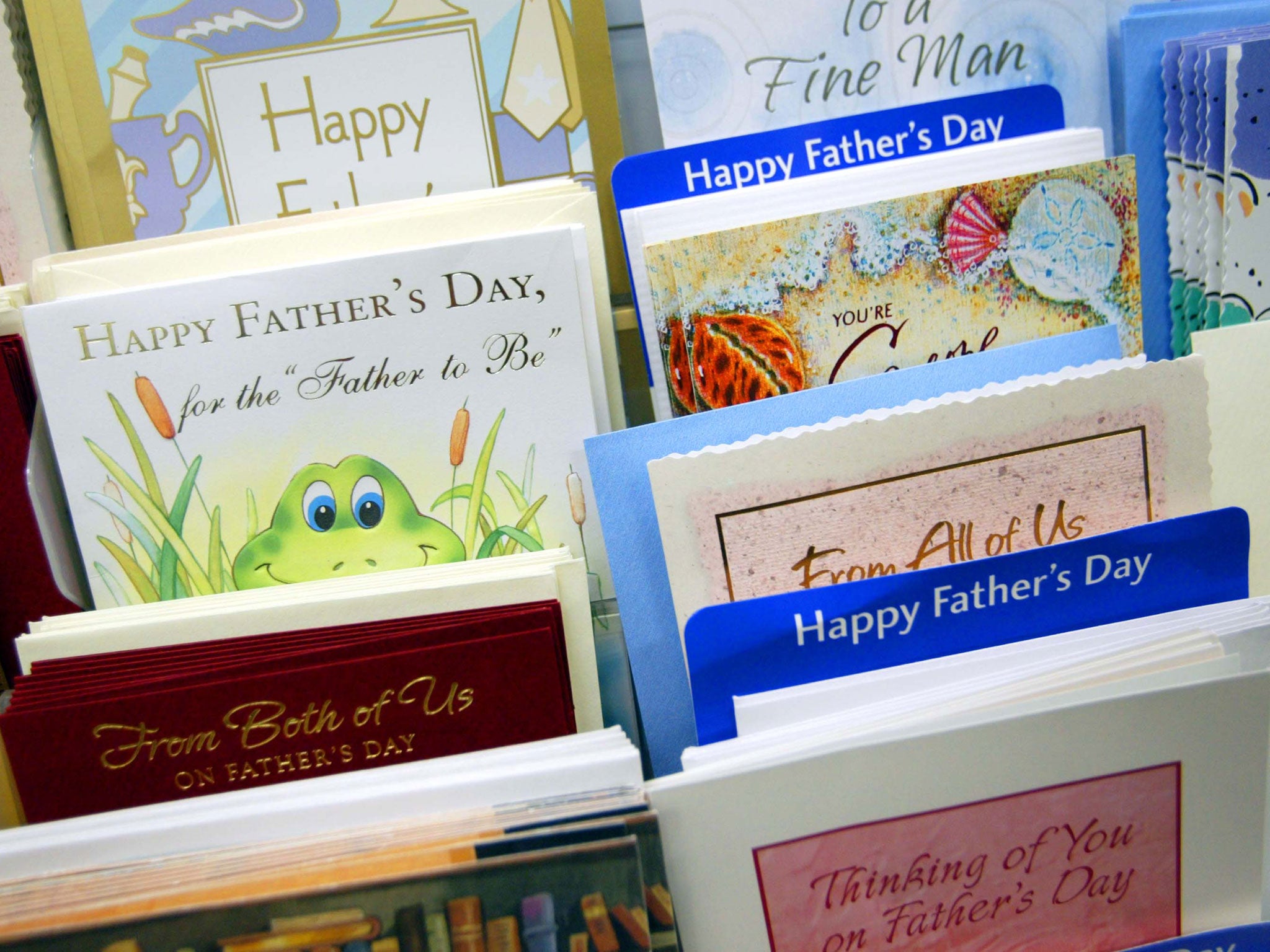This Father's Day, I'm giving my dad the gift of feminism
If Father’s Day is about celebrating paternal success – if the ‘World’s Best Dad’ mugs lining the kitchen cupboards mean anything at all – what better date is there to reflect on the position of the patriarch in society?

Our family relies on a couple of tried-and-tested Father’s Day treats. The first is the humorous greeting card, invariably an image of an orangutan or gorilla with glued-on googly eyes. The second is the consumable component: beer, chocolate, or beer and chocolate. Any deviation from this tacit arrangement – including one earnest foray into songwriting – has resulted in mutual disappointment. Thought, it seems, does not count for much if the end product is not kooky or edible.
I have toed the family line since that ill-fated musical experiment, but not this year. Come Monday, there will be no empty bottles or heaps of foil wrappers left lying by the sofa, nor the lingering aftermath of a lyrical let-down. What will remain instead is less certain – perhaps indifference, irritation, or a newfound resolve to smash systemic sexism. Fingers crossed for the third. Yes, on June 19th I hope to bring together that (allegedly) unlikeliest of pairings: fatherhood and feminism.
You can practically hear the clicks of browsers being quickly closed. Cue the complaints that a date expressly intended to honour men has been seized as yet another chance to bemoan female plight. But if Father’s Day is about celebrating paternal success – if the ‘World’s Best Dad’ mugs lining the kitchen cupboards mean anything at all – what better date is there to reflect on the position of the patriarch in society?
Early 2016 marked a low in my parents’ middle-aged lives. My dad was made redundant in December after decades of working for the same firm, becoming a househusband for the first time. My mum had a job that she disliked and was sticking at it for the sake of financial security, despite feeling undervalued and overworked. My three siblings and I – a mixture of ages and genders between us – added to the underlying stress by squabbling with them and among ourselves.
Understood through the lens of tradition, my dad’s set of circumstances would be considered emasculating. His position as breadwinner was replaced by a list of chores that, for the most part, he had previously managed to avoid. His role as “head of the house” had been lost, with his children now taking turns to question his authority and pick holes in his small-c conservative worldview. But underlying these niggles was frustration at the harm caused – to us and to himself – by the status quo.
Even when out of employment, he didn’t pull his weight with domestic duties. He had his reasons – job applications can be laborious – but it was hard to shake the suspicion that he saw cooking and cleaning as “women’s work”, regardless of who was bringing home the bacon. My mum’s job, it was understood, served primarily to keep family funds ticking over until my dad could reclaim a larger pay packet. The message was loud and clear: one parent’s career mattered more than the other’s.
This imbalance was implicitly justified as a common sense route back to a more stable income. Wasting time on the washing, after all, would lower the likelihood of my dad finding work. But this rationalisation typifies the tendency to prioritise men’s career ambitions, both a symptom and a cause of the gender pay gap. The opposite scenario is so uncommon that we feel the need to praise husbands who “enable” their wives to follow their career goals. Surely that supportive stance should be a given?
When it comes to being a good paternal role model, what you say matters as much as what you do. Many fathers actively reinforce gender stereotypes rather than helping to deconstruct them, unaware of the impact that throwaway comments can have. Teasing your daughter for a “girly throw” may seem trivial, but it could contribute to her avoiding the sports field. Mocking your son for enjoying hobbies or wearing clothes that are considered “feminine” imposes limits upon what it means to be male.
Then there is what you don’t say. Society encourages men to hide their feelings, which often go unspoken until it is too late. This pressure to be emotionally neutral can make basic worries or even a simple “I love you” tough to squeeze out. These all too familiar situations disproportionately affect men, but the concerns are bound up with the aims of feminism. Despite frequent and misinformed claims to the contrary, the movement to remove gendered barriers and expectations helps us all.
Feminism reminds us that an egalitarian marriage is a happier one. It argues that closing the gender pay gap is not only an essential step towards equality, but is also economically advantageous. It reassures us that a man who shows vulnerability or earns less money than his female partner is as much of a man as a macho millionaire is. To all doubting dads out there: this F-word is not a curse. Your partners and your children stand to benefit immensely from its goals, as do you.
So why reduce our celebration of fatherhood to quaffing ales or scoffing boxes of Quality Street? This Father’s Day, I will be sharing the liberating gift of feminism, and I invite you to join me. You could give your dad a feminist book, show him a documentary film, or pen him a thoughtful letter. Anything would be a step up from the forgettable simian novelty cards of yesteryear. Those patriarchal primates will roll their eyes and scream gimmickry, trying to coax us back into the comfort of convention. Let’s not ape them.
Join our commenting forum
Join thought-provoking conversations, follow other Independent readers and see their replies
Comments
Bookmark popover
Removed from bookmarks